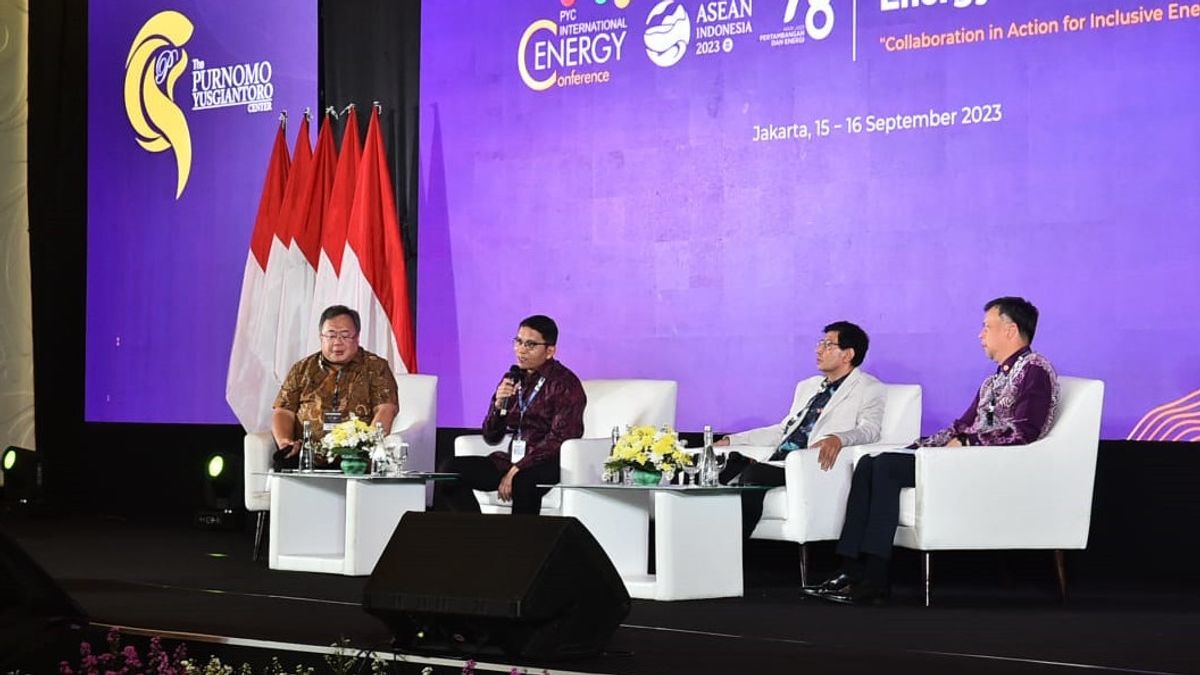JAKARTA - Secretary General of the Ministry of Energy and Mineral Resources (ESDM) Dadan Kusdiana explained a number of steps taken by the Indonesian government in pursuing carbon neutrality.
According to him, the target for the Net Zero Emission (NZE) in 2060 still has various challenges. The process of transitioning energy to new and renewable energy (EBT) will run aground in the middle of the road if it does not have careful planning and rules out energy security in Indonesia.
"We must increase energy security by accelerating the transitional clean energy and reducing the need for imports and consumption of fossil fuels. Energy security is becoming increasingly important on the way to net-zero," said Dadan, quoted on Saturday, September 16.
Dadan reminded that Indonesia has committed to achieving the NZE target by 2060 or sooner. To achieve carbon neutrality, Indonesia has made the decarbonization program not only in the electricity sector, but also touching the energy consumption sector consisting of industry, transportation, housing and the commercial sector.
"In the industrial sector, it can be done by increasing the electricity share, increasing energy efficiency, implementing hydrogen as a substitute for gas and biomass as a substitute for fossil fuels, applying CCS/CCUS technology for cement, the chemical and steel industry," Dadan said.
Meanwhile, in the transportation sector, according to him, it is continuing the use of biofuels, accelerating electric vehicles, implementing the use of hydrogen for trucks, environmentally friendly fuels for vehicles, and electric ships for short distances. Meanwhile, in the household and commercial sectors, by replacing LPG with gas cities, induction stoves, and dimethyl ether; and increasing the use of high energy-efficient equipment.
SEE ALSO:
In the roadmap created by the Government towards NZE, the main strategy on the supply side is the massive development of new products and renewable energy, the gradual cessation of fossil fuel power plants, conversion from diesel power plants to gas and renewables and the low utilization of technological emissions such as CCS/CCUS, hydrogen and nuclear technology.
"Starting in 2030, the development of Variable Renewable Energy (VRE) Solar PV will increase on a large scale, followed by wind power plants starting in 2037. Nuclear power will be commercial in 2039 to increase the reliability of the power system. That capacity will be increased to 31 GW by 2060. Meanwhile, hydrogen will start producing from renewable energy power plants in 2031 for transportation and industry," concluded Dadan.
The English, Chinese, Japanese, Arabic, and French versions are automatically generated by the AI. So there may still be inaccuracies in translating, please always see Indonesian as our main language. (system supported by DigitalSiber.id)
















